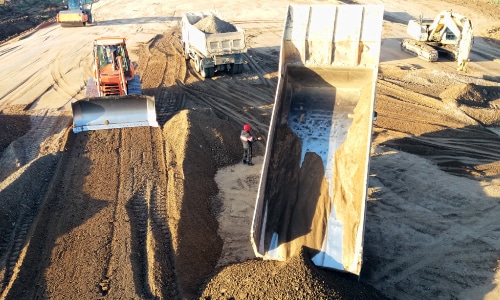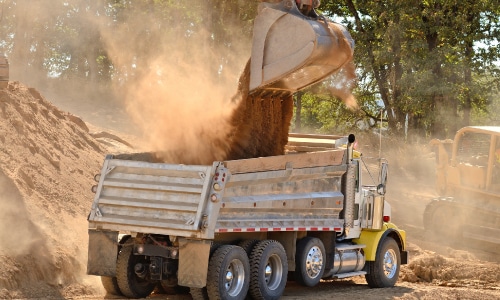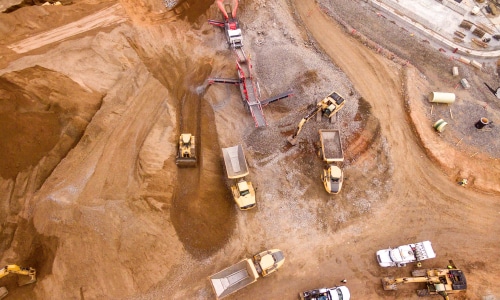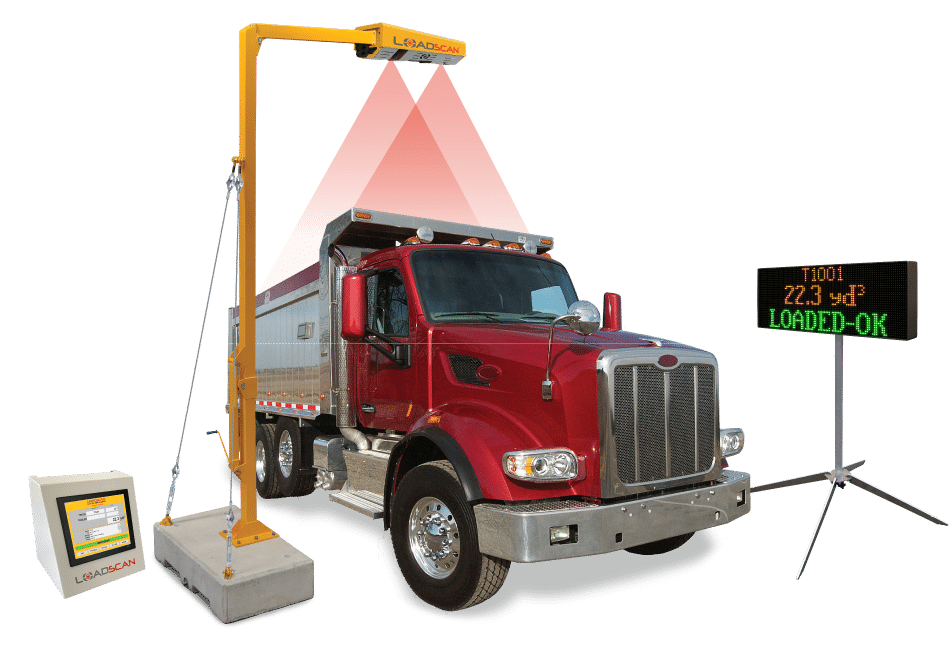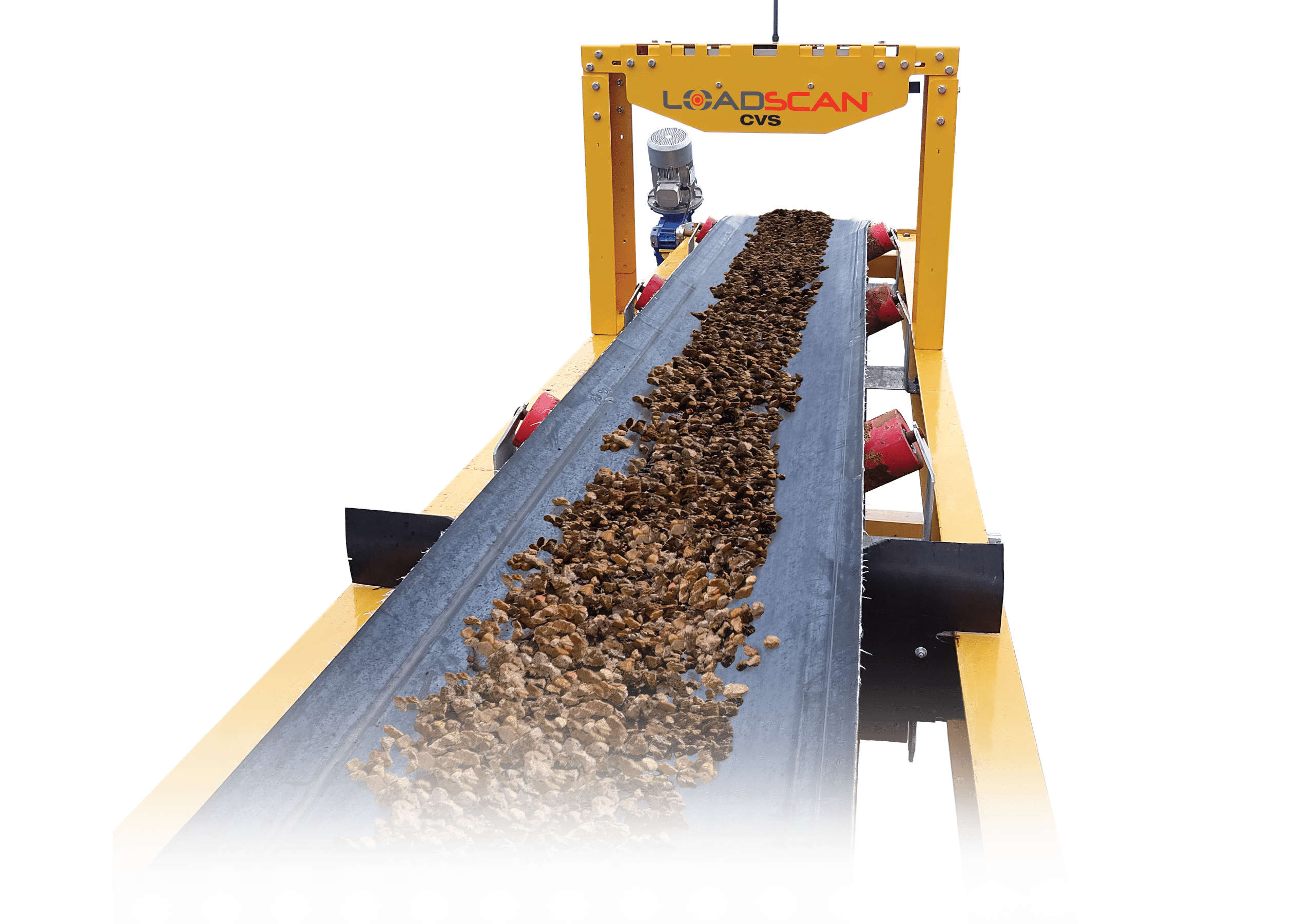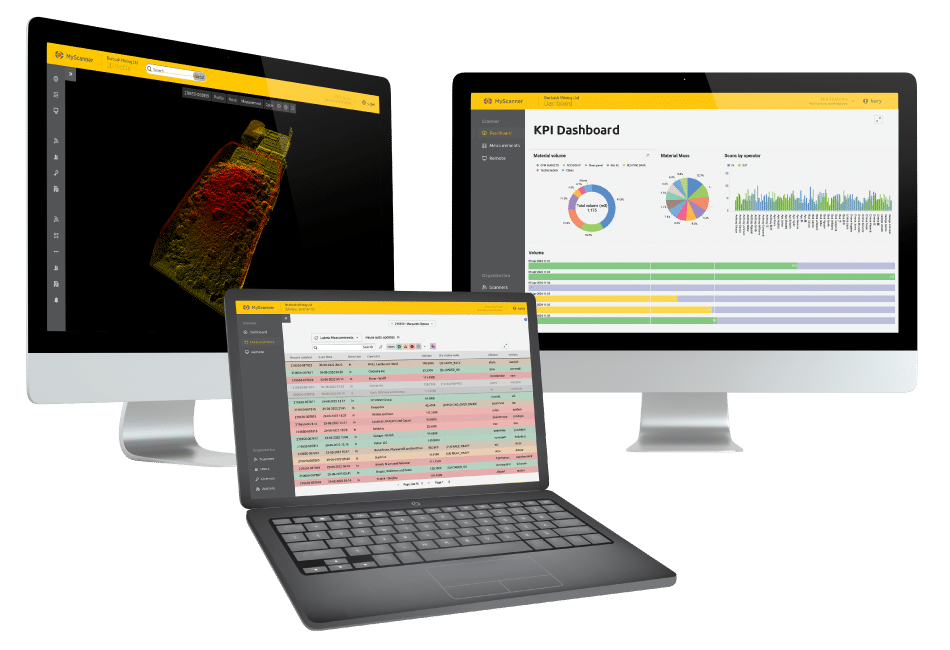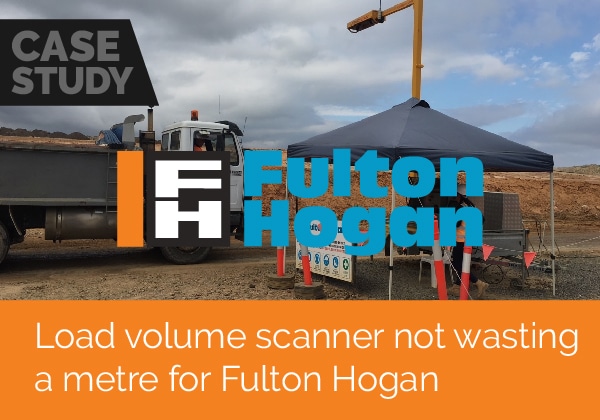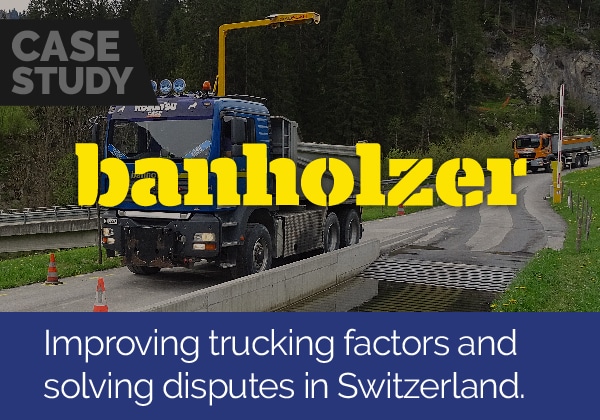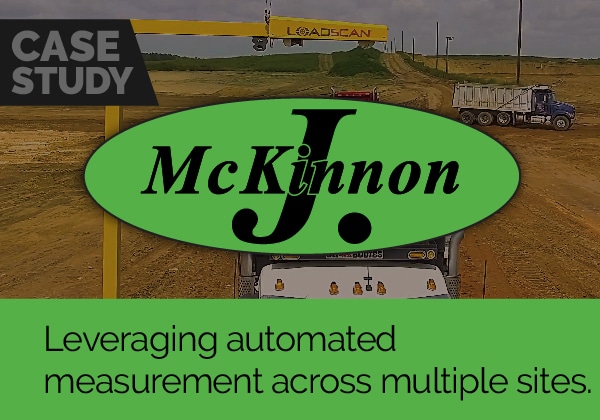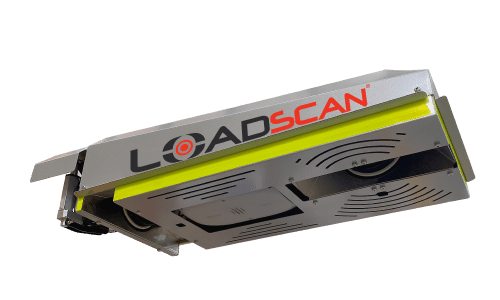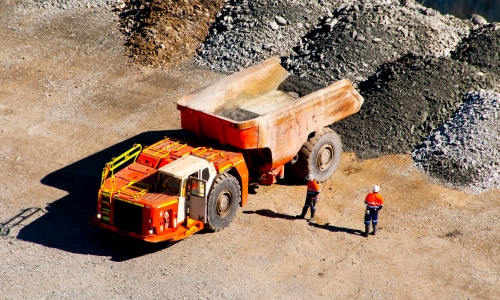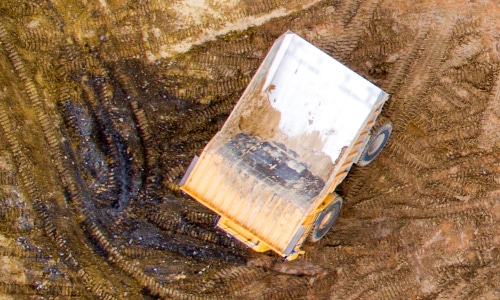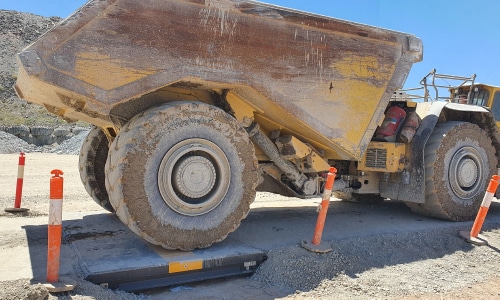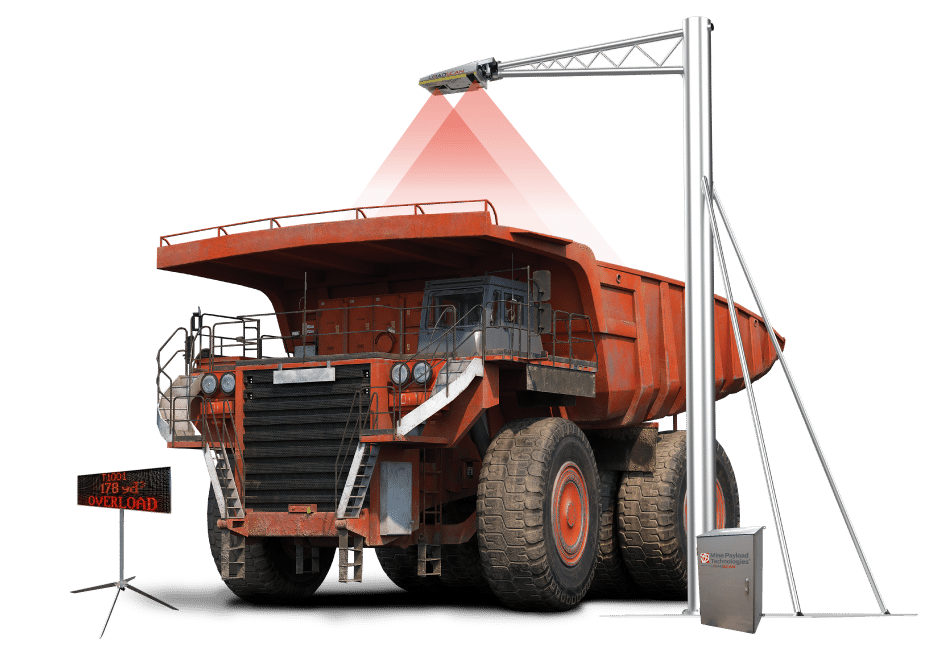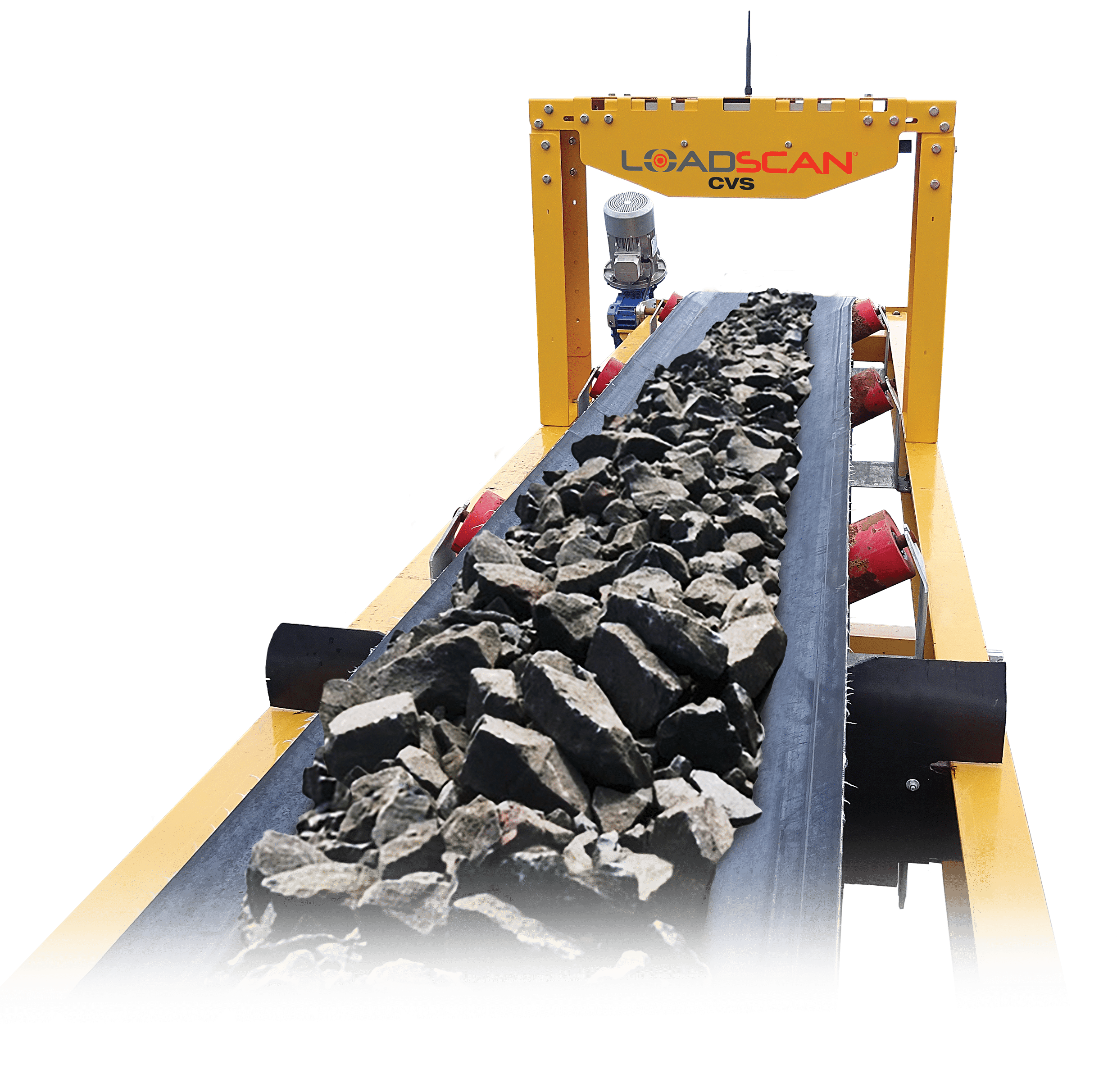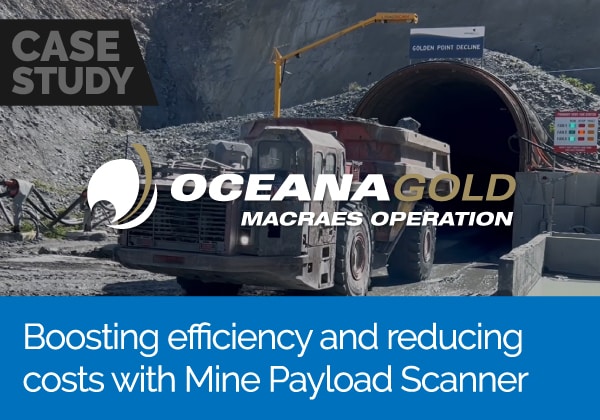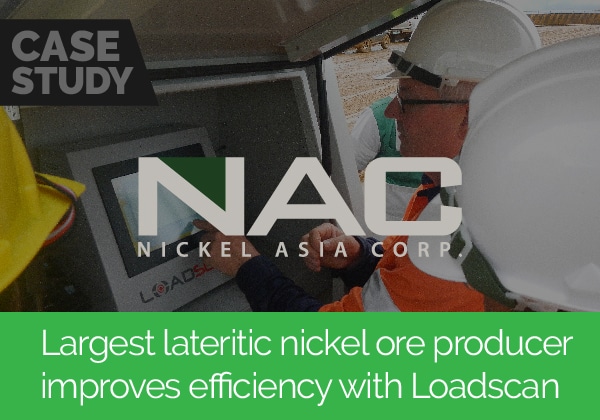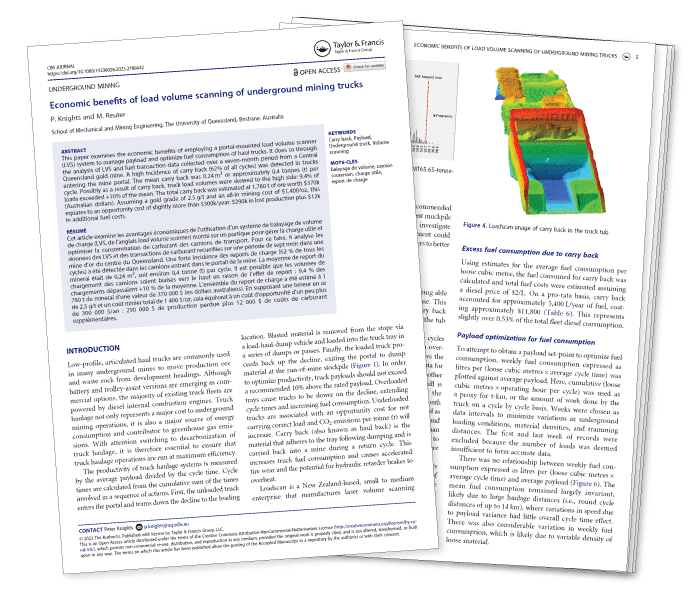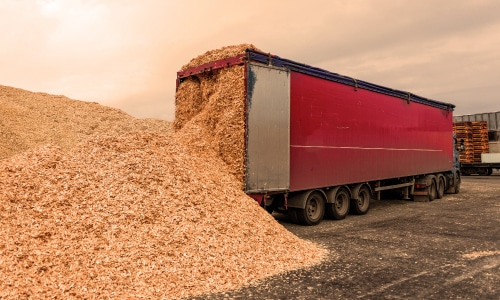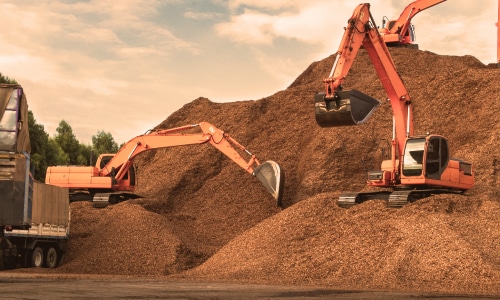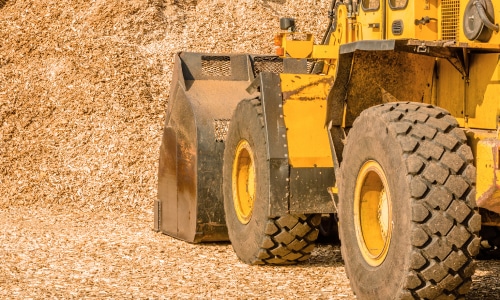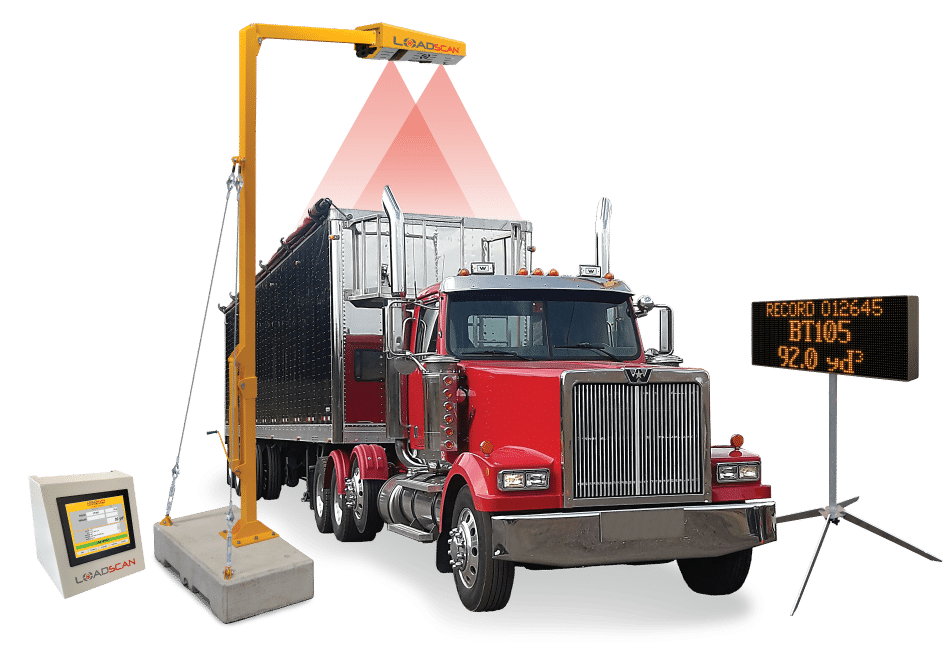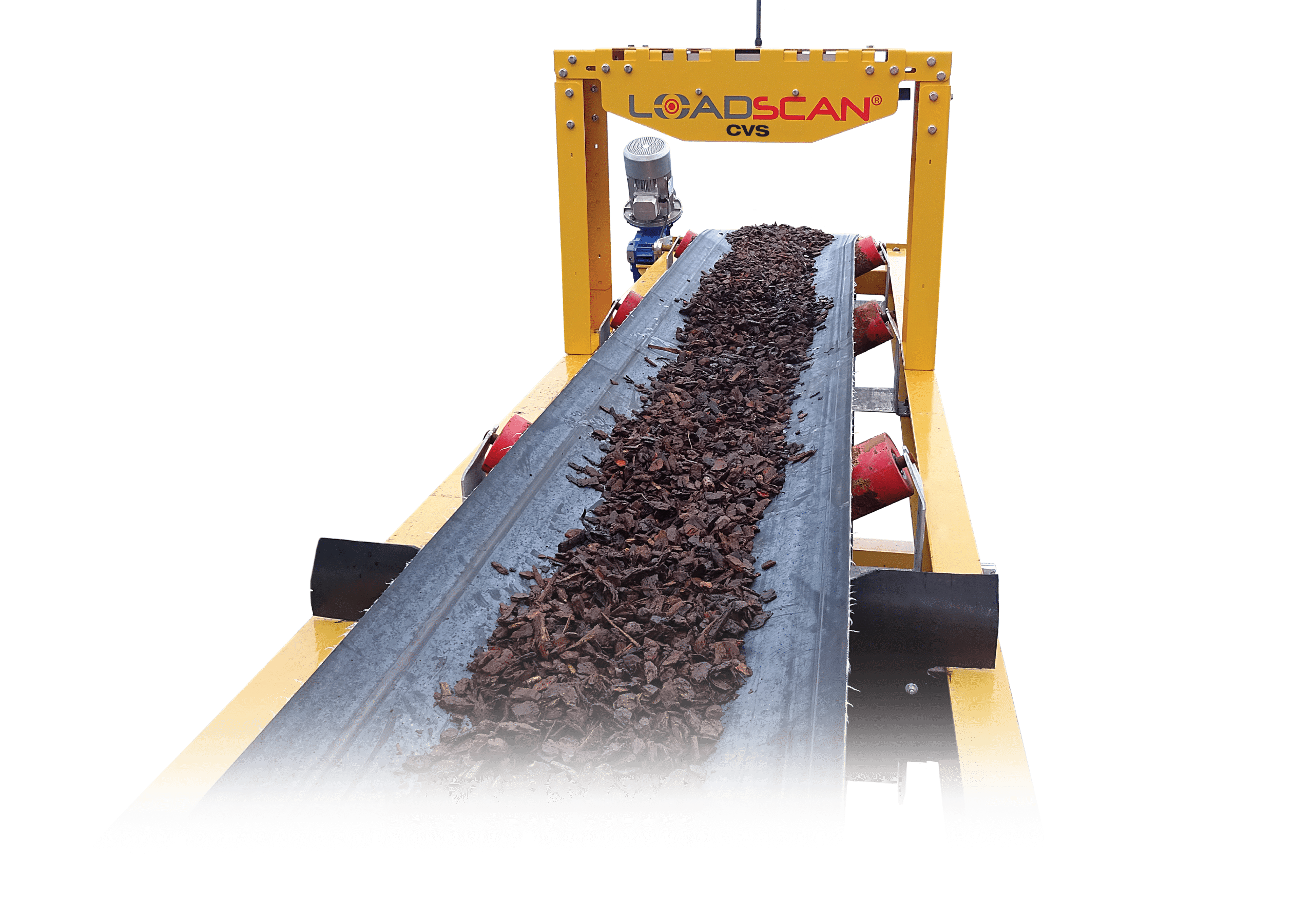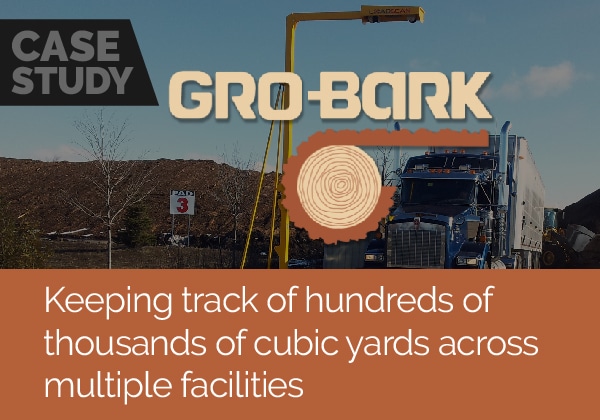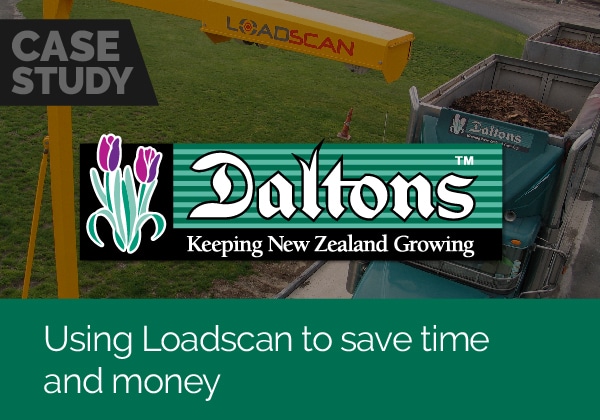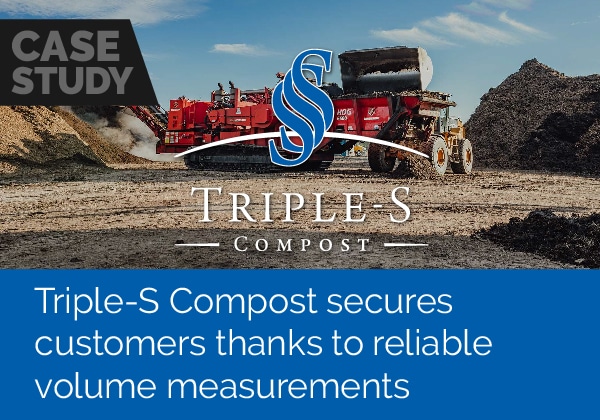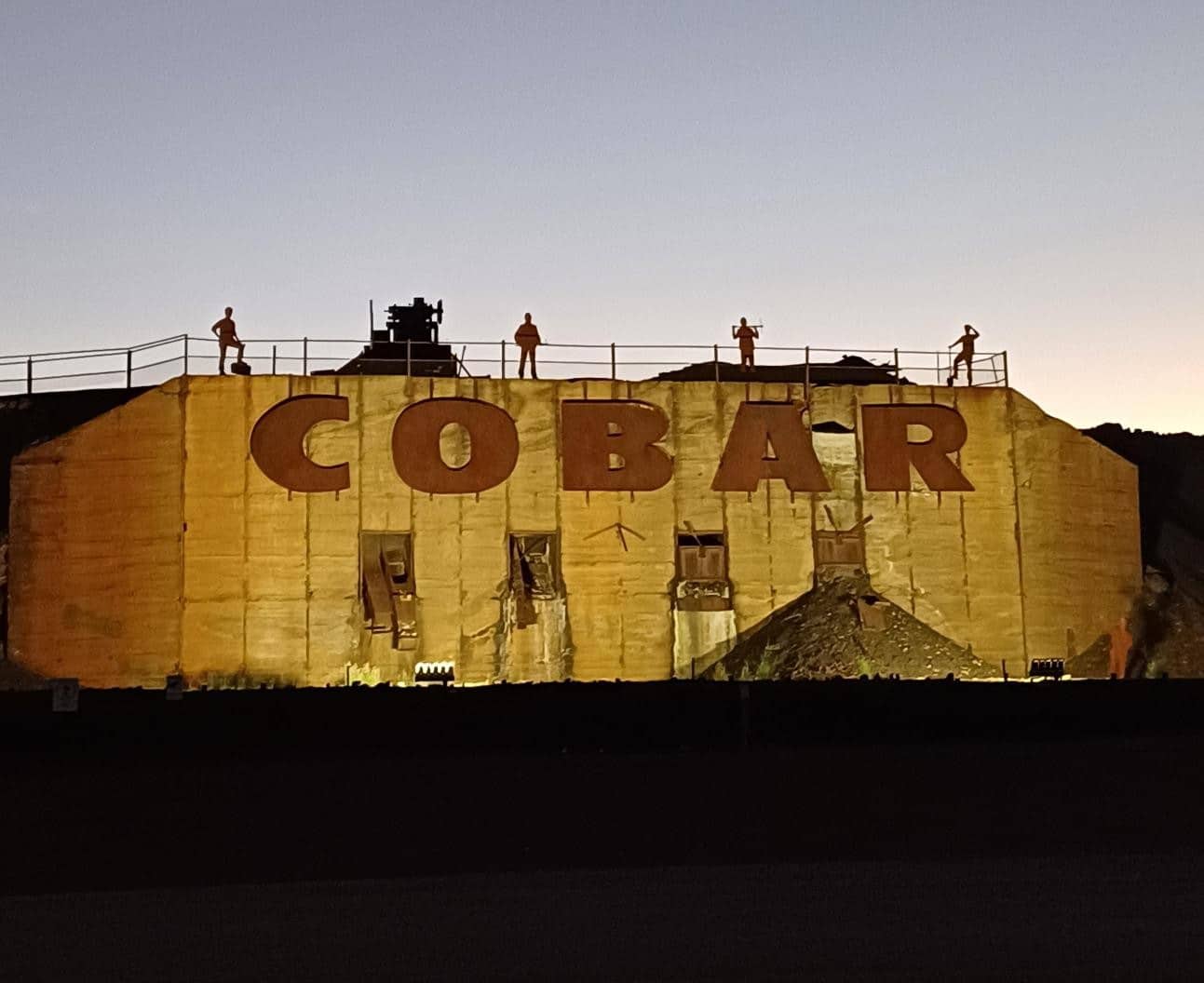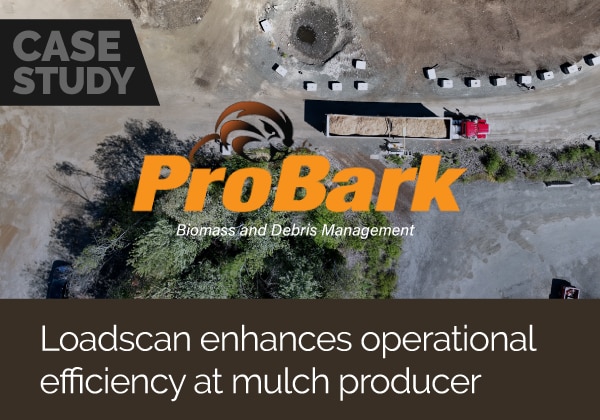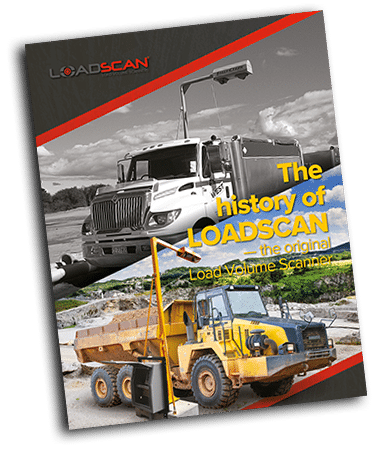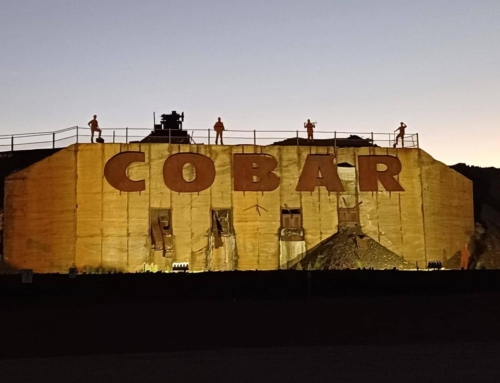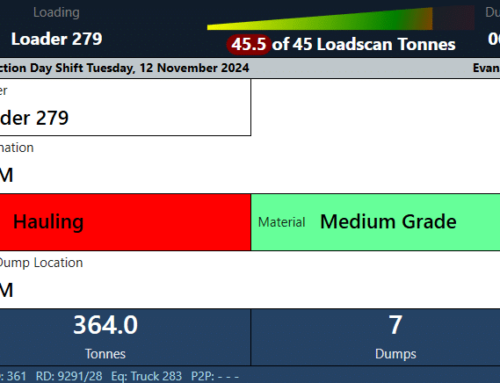Optimizing Mining Operations with Pitram and Loadscan Integration at CSA Cobar The MAC [...]
Loadscan started from humble beginnings when, in 1998, the first Load Volume Scanner (LVS) was developed by Wayne West in New Zealand. Initially named Tally Clerk, Wayne wanted to solve the problem of accurately counting truckloads of materials.
Wayne developed a prototype unit which was extensively trialled at an Auckland site during the construction season, monitoring the movement of 150,000 m3 of fill material from the site in truck and trailer units. In 1999 Tally Clerk was first certified in New Zealand.
Daltons was the first to purchase and deploy a certified LVS system into their operations in the year 2000. A signature compost and mulch producer based in Matamata, New Zealand, the company used the system to measure and account for all inbound quantities of bulk raw materials hauled and for billing all outbound products supplied to customers. Daltons also use the Loadscan Overview reporting software to simplify the billing and invoice process by eliminating the need to sort through hand written paper docket.
In 2006 Wayne employed the engineer who helped develop the original product and they continued refining it and working towards trade approval in Australia.
A total of eight LVS units was sold in New Zealand in 2007 to quarry, civil construction and mulch and compost operations with four units heading to Australia to be used in the civil construction industry.
2009 brought the first sale into the USA to highly respected mulch and compost company PR Russell Mulch. The scanners are being used to monitor load volumes of outgoing processed product.
This year Loadscan also started working with the National Institute of Weights and Measures (NMI) in Australia to gain approval to use the LVS for trade purposes in Australia. Metrological testing was completed on the LVS components, accuracy testing was done with the NMI in New Zealand.
Trade approval was gained in Australia in 2010. Further sales were completed in the USA to signature compost and mulch producer, Texas New Earth, installing two LVS units. One each in their San Antonio and Conroe operations. In March the Certificate of Approval for trade was issued by the NMI
2012 was the year Carey West, son of the late Wayne West, took over the company and rebranded to Loadscan. Carey used to work in the construction industry in Hamilton while his Dad was developing the original scanning machine, and was perfectly positioned to see what improvements could be made to the product. Courage, determination, and business savvy were the reasons that only a year later in 2013, Loadscan was exporting to Canada, Mexico, Mongolia, the Democratic Republic of Congo, Russia, Senegal, Zambia the Philippines and Indonesia.
In March 2013 Daltons installed a new Loadscan LVS-3BMF and the old Tally Clerk was refurbished and put to work in a satellite facility.
Carey took the LVS system to the next level in 2014 by introducing a portable, semi-portable and fixed gantry models to best suit the customer’s application as well as extending the range of measurable load materials and truck types. LVS devices are now successfully operated on a full spectrum of truck and trailer designs including on-road truck and trailers, semi-trailers and centre-dumpers, as well as off-road articulated dumpers and quarry trucks.
Loadscan continued exporting to Mongolia, Russia, Canada and the USA with Odod Gold being the first to purchase four portable LVS units and added additional ones later that year. Multiple units were sent to be used in the oil and gas industry in Texas.
A big breakthrough in 2015 saw Loadscan re-entering the Australian market with Fulton Hogan. The well-known construction company needed an accurate load management solution and purchased custom mount units to install into underground mines in New South Wales.
2016 was the first year Loadscan entered the European market with sales in Germany as well as Switzerland and to RWE, the largest coal mine in Europe. There was also continued expansion into Australian underground mines and the bark and mulch industry with two units going to Richgro, one of Australia’s leading suppliers of premium garden products
2016 also saw the first full 24-hour trailer mounted solar system installed in Senegal, Africa.

